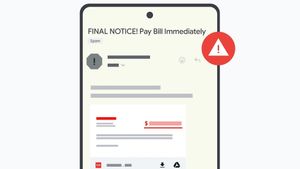JAKARTA - T. Rabi Sankar of the Reserve Bank of India compared cryptocurrencies to the crimes of ponzi schemes and said that banning them, and not regulating them, would be the "most recommended option" for the Indian government.
“We have also seen that cryptocurrencies cannot be defined as currencies, assets or commodities,” said Sankar, Deputy Governor of RBI, in his speech on Monday, February 14.
"Cryptocurrency is not a currency, or a financial asset or a real asset or even a digital asset. Therefore, it cannot be regulated by any financial sector regulator. It is impossible to regulate something that cannot be defined," Sankar was quoted as saying by Cointelegraph.
Sankar feels that regulating cryptocurrencies will eventually condone its use as a store of value and even currency in some cases. Just regulating it can be tantamount to encouraging its use within the framework set by the government.
However, he acknowledged that some people would still use crypto if it were banned, just as “drug trafficking is becoming a rampant phenomenon despite the ban.”
He also pointed out that allowing cryptocurrencies to exist in a fiat-dominated ecosystem “will inevitably have a destabilizing effect on the monetary and fiscal stability of a country.” If crypto is regulated so that it can be used as an investment asset, Sankar said that its utility will increase as a store of value, and could attract more users from the Rupee, India's currency.
Sankar even attacked the true value of cryptocurrencies. “Also, unlike the value of the Rupee, which is tethered by monetary policy and its status as a legal tender, the value of a crypto asset is solely dependent on the expectation that others will also value and use it,” said Sankar.
India is one of many countries where crypto companies and lawmakers are demanding greater regulatory clarity to guide their actions. Without such clarity, it is difficult for businesses to formulate long-term plans for their products and services that they believe will not violate any laws.
On February 11, India's Finance Minister, Nirmala Sitharaman said that she would not immediately decide whether to legalize or ban crypto to leave India in a prolonged state of regulatory limbo.
The Indian government has been experimenting with its ability to deploy a central bank digital currency (CBDC). Sitharaman revealed on February 1 that he hopes to launch a digital rupee program in 2023 to boost his country's economic growth.
The English, Chinese, Japanese, Arabic, and French versions are automatically generated by the AI. So there may still be inaccuracies in translating, please always see Indonesian as our main language. (system supported by DigitalSiber.id)








